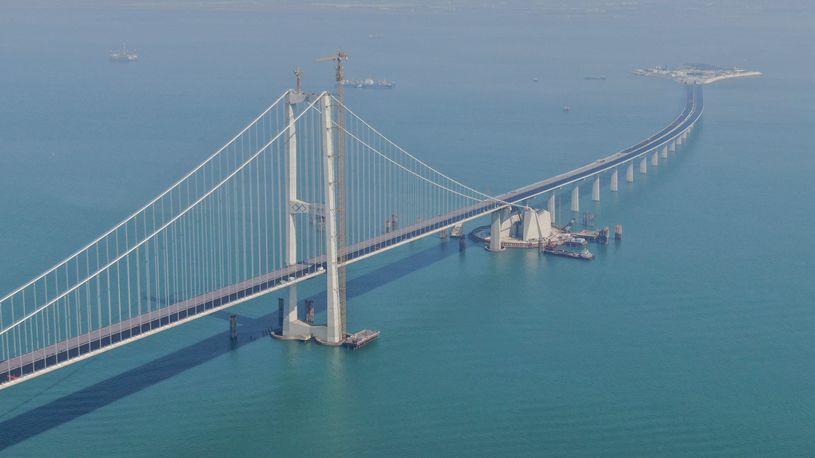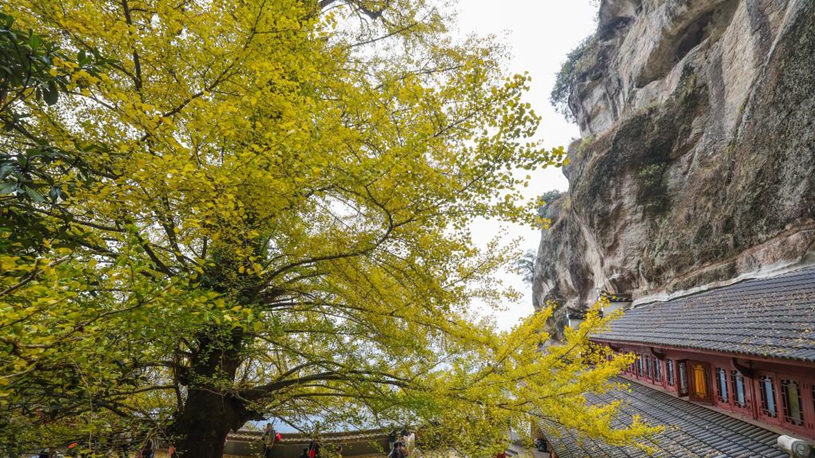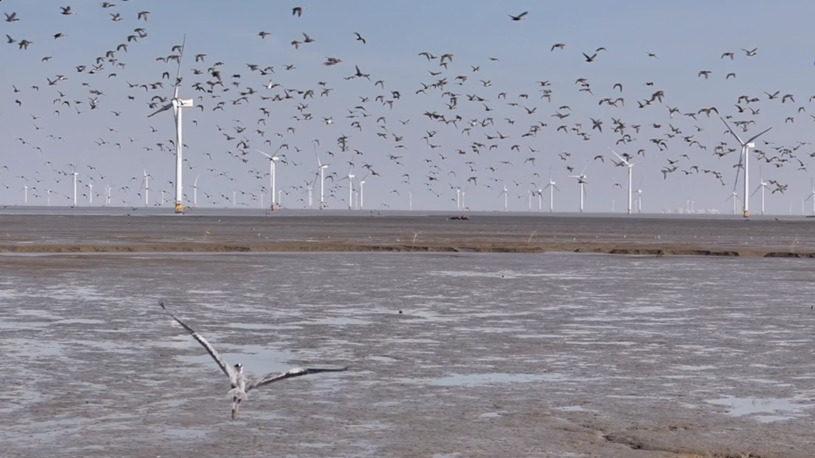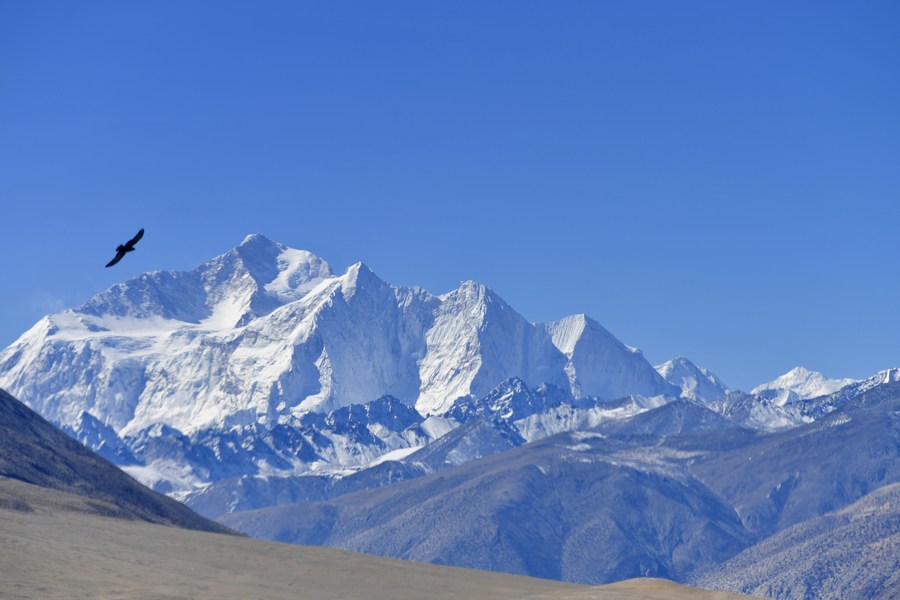 This photo taken on Oct. 27, 2023 shows a view of Mount Qomolangma at noon. (Xinhua/Zhang Rufeng)
This photo taken on Oct. 27, 2023 shows a view of Mount Qomolangma at noon. (Xinhua/Zhang Rufeng)
CHONGQING, Nov. 29 (Xinhua) -- Despite losing his sight completely at 21, Zhang Hong in 2021 summited Mount Qomolangma to become Asia's first blind climber to scale the world's highest peak.
Zhang, who was born in southwest China's Chongqing Municipality, said that it was the draw of Mount Qomolangma that pulled him away from the self-doubt that had long plagued him.
Zhang's blindness, which was caused by glaucoma, is hereditary. In his autobiography, he wrote, "The inferiority brought by my family was like a scar in my heart. After losing my sight, a sharp knife was cut into that scar, splitting my heart, making it rotten and bleeding."
"With this anger, I always wanted to do something to prove that a blind man is no less than a normal man," Zhang said. Like many others with visual impairments in China, Zhang once made a living as a masseur. But he was not content, and aimed to challenge that label by proving that people with visual impairments can pursue other careers, just like any other person.
Following a referral from his friend, Zhang became a medic at a hospital in 2011. But still, his goals were loftier.
And when a well-known climber raised the topic of Mount Qomolangma during a casual chat with Zhang in 2015, he began to realize that his goals were lofty both metaphorically and literally. He had heard about American climber Eric Weihenmayer, who scaled Mount Qomolangma in 2001 and is blind.
He began climbing more than 200 flights of stairs from 4 a.m. to 7 a.m. every day, carrying 30-kilogram weights at an altitude of over 3,000 meters in Lhasa, southwest China's Xizang Autonomous Region.
"The stairs seemed more difficult than Mount Qomolangma to me," Zhang said. Though he doubted his abilities during that time, and though he knew that he wouldn't be able to afford the fees to climb the peak, he continued to prepare for an opportunity.
Four years later, Zhang had climbed three snowcapped mountains. His third, Mount Muztagata, is often the peak climbers tackle prior to attempting Mount Qomolangma. After returning to level ground after summiting Mount Muztagata, his mind was focused solely on the fact that he was one step closer to his ultimate goal.
In May 2021, Zhang traveled to the base camp of Mount Qomolangma. The weather conditions were adverse, but he remained undaunted. "It showed me that nature treats everyone equally. It didn't treat me differently because I am blind."
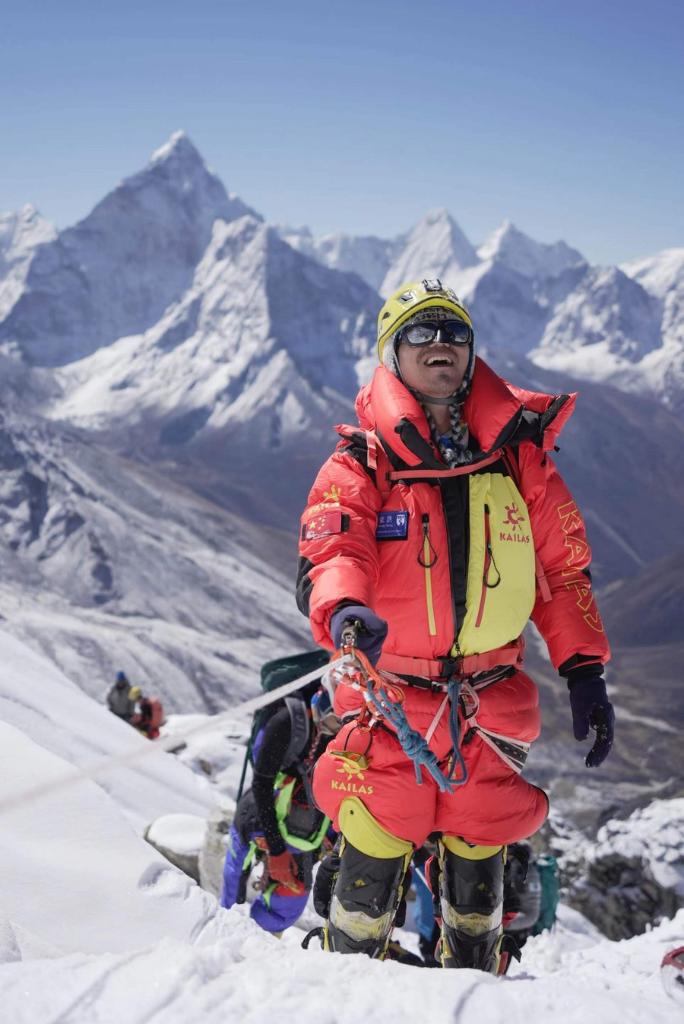
This file photo taken on April 18, 2021 shows Zhang Hong climbing Mt. Lobuche in Nepal. (Photo by Ding Liang/Xinhua)
On May 19, 2021, Zhang and his team began their climb. He focused only on his instinctive connection with the mountain.
With each step on the cold ground, he thanked the mountain for accepting him, he recalled. When the wind blew, he treated it as a response from the mountain. He found he was able to imagine the stars shining over his head, and said it had felt as though they were encouraging him.
Though his thoughts were encouraging, Zhang encountered dangers such as momentary vertigo and oxygen leakages, and his guide at one point fell into a crevice in the ice.
Zhang reached the summit on May 24, 2021, becoming the world's third blind person to complete the feat, following in the footsteps of Weihenmayer and another climber from Austria.
But having made his dream a reality, all he could think about was getting back down as soon as possible.
He said that his life flashed through his mind in the final hour of his descent to base camp. He felt immense relief, as though all his anger and the judgment of other people that had stayed with him had melted on the mountain. He said there were tears in his eyes when he arrived at base camp on May 27, 2021.
"In the past, I thought life was so unfair. Now I think that maybe life is giving me a mission to prove that blind people can also achieve anything and be of value to others," he said. ■



